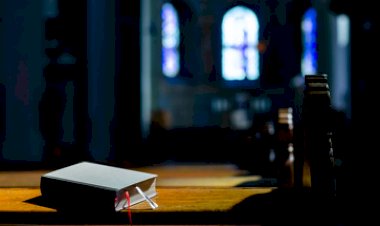A "capsule" to kill oneself Presented in Switzerland
the "Sarco Suicide Pod" is an appliance to kill oneself without assistance.

A "capsule" to kill oneself
Presented in Switzerland, the "Sarco Suicide Pod" is an appliance to kill oneself without assistance. Its designer, the Australian Philip Nitschke, hopes to obtain its authorisation and patent. His objective is to "de-medicalize" death.
Dr Philip Nitschke, an Australian doctor nicknamed "Dr. Death," has announced the launch of his product in 2022 in Switzerland: a suicide "capsule". The Sarco SuicidePod, is a 3D printable apparatus which resembles a portable coffin. It is controlled by the user himself.
Once inside the capsule, the user must answer a series of questions, "an artificial intelligence diagnostic system to establish the person's mental capacity," before being allowed to press the button. The sarcophagus then fills with liquid nitrogen and the oxygen level increases from 21% to 1%. The user falls asleep in about 30 seconds, then dies in less than 10 minutes. The device is equipped with an emergency button to exit.
Assisted suicide is legal in Switzerland, but not euthanasia! In 2020, the Exit association recorded nearly 1,300 assisted suicides. Around 1.5% of deaths recorded in Switzerland each year result from assisted suicide. In order to resort to assisted suicide, the patient must meet certain conditions. The law states that he must have an "incurable disease" or experience "unbearable pain" which "palliative care cannot alleviate". In addition, a physician must assess the patient's ability to make such a decision. This is a fundamental point of the system provided for by law. And only after the evaluation of the doctor, sodium pentobarbital can be prescribed to the patient.
Does the Sarco Suicide Pod meet the requirements of Swiss law? Is a simple online test enough to measure the "patient's ability" to make the decision to end his or her life? Can a machine assess the unbearable nature of pain, especially since the perception of suffering is very different from one person to another?
Daniel Huerlimann, a lawyer and assistant professor at the University of St. Gallen, was commissioned to evaluate the system. His diagnosis: the "capsule" "does not constitute a medical device". It would therefore be "not covered by the Swiss Therapeutic Products Act".
"Medical devices are regulated because they are expected to be safer than other products," says Kerstin Noelle Vkinger, a doctor, lawyer and professor at the University of Zurich. "Just because a product isn't beneficial to health doesn't mean it's not also affected by these additional safety requirements," she says. Daniel Huerlimann, on the other hand, believes that "the capsule would not violate the laws governing the use of nitrogen, weapons or product safety". Conclusions that push Philip Nitschke to believe that "there is no legal problem". But approval has not yet been obtained.
Swiss associations that promote assisted suicide among their members, have not declared themselves interested in the system. However, the futuristic design of the capsule is intended to give it a "glamorous" look, and its inventor goes so far as to offer free of charge the design of the system. While Philip Nitschke prides himself "de-medicalizing the process of death," opposition to this is fortunately growing. The director of the Australian NGO Cherish Life Queensland, Teeshan Johnson, is calling for an end to the capsule's "promotional tour" in Australia. "Australia has a suicide problem that is devastating," she recalls, "and promoting suicide, as Nitschke does, is extremely dangerous and counterproductive to suicide prevention programs." But there is a need of much greater public outcry against this normalisation of suicide created by the culture of death. Studies show it: there is a copy-cat contagion when a country decriminalizes assisted suicide, death becomes a possibility, and the number of suicides increases.
Whether by asphyxiation within a capsule or by other means, "assisted" or not, a suicide remains a suicide. What Philip Nitschke himself confesses: this simply "allowing the individual to control the method himself" to end his life.
- Adapted from Hélène Join-Lambert- Gènéthique - published on 28/12/21 – on Aleteia


















